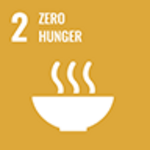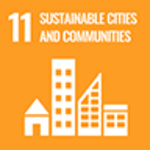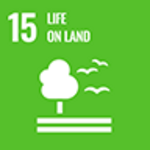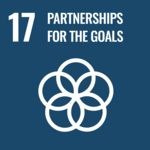The "Kitami Garden SDGs Farm" is a collaborative project between the Hokkaido University Institute for the Advancement of Sustainability SDGs Project Promotion Division and the Hokkaido Marathon Organizing Committee, which aims to promote resource recycling on campus through the utilization of leaf litter made from fallen leaves collected at Hokkaido University's Sapporo Campus. The project is designed to promote the recycling of resources on campus, not only with the university's students and faculty but also with the local community.
The SDGs garden, located in the courtyard of the museum, is created and managed by the volunteer group "Kitamite Garden" of Hokkaido University Museum, which consists mainly of Hokkaido University faculty and staff, the Hokkaido Marathon Secretariat, and Hokkaido University students.
press release *You will be redirected to the university's main website.
This initiative is supported by the Japan Association of Athletics Federations (JAAF). Received the "BEST THINK Award" at the "Athletics Awards 2024" *You will be redirected to Institute for the Advancement of Sustainability website.
If you are a student or faculty member of our university who would like to work with us, please contact us using the "Inquiries" link at the bottom of the page.
<Project Organization>
Planned by: Hokkaido University Institute for the Advancement of Sustainability, Hokkaido Marathon Office
Cooperation: Kitamite Garden, Museum Cafe Plus, Hokkaido University Museum, Hokkaido University Facilities Department, Hokkaido University Field Science Center for Northern Biosphere, Sapporo Research Forest and Biological Production Research Farm
<Background to the project's launch>
Hokkaido University's Sapporo Campus has been used as part of the Hokkaido Marathon course since 2009. The Hokkaido Institute for the Advancement of Sustainability SDGs Project Promotion Division and the Hokkaido Marathon Secretariat have been discussing ways to further deepen their collaboration on the theme of SDGs.
Prior to this, the Hokkaido University Institute for the Advancement of Sustainability SDGs Business Promotion Division had been considering ways to effectively utilize fallen leaves that are treated as waste on campus, with the aim of having students and faculty and staff learn about and think about how to utilize them. In 2023, the year before this project began, a test was conducted to see if the leaf mold left after manually removing stones and garbage from piles of accumulated fallen leaves could be used to grow vegetables, and cherry tomatoes and basil were harvested.
Based on this test, this project, which began in 2024, aims to increase the sustainability of the Sapporo Campus, which will continue to be used as the Hokkaido Marathon course, and was realized with the cooperation of Field Science Center for Northern Biosphere Sapporo Research Forest and Biological Production Research Farm, Kitamite Garden, Museum Cafe Plus, Hokkaido University Museum, and the Hokkaido University Facilities Department.























